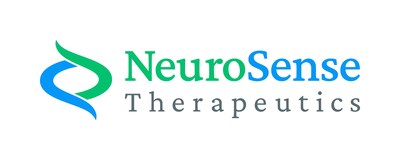NeuroSense Therapeutics Extends ALS Biomarker Collaboration with Massachusetts General Hospital
Rhea-AI Summary
NeuroSense Therapeutics (NRSN) has initiated the third stage of a biomarker study with Massachusetts General Hospital (MGH) to investigate ALS biomarkers related to its lead product candidate, PrimeC. Building on previous studies, this new phase aims to evaluate biomarkers in patients not previously treated with PrimeC, providing further insight into ALS symptom progression. The collaboration is expected to enhance understanding of PrimeC's mechanism of action, support clinical trial optimization, and expedite potential commercialization.
Positive
- Successful prior studies with MGH leading to a new phase of research.
- Initial studies revealed statistically significant changes in ALS biomarkers linked to PrimeC.
- Enhanced understanding of ALS biomarkers could support PrimeC's clinical development and FDA approval process.
Negative
- Dependence on PrimeC for clinical success and obtaining regulatory approval poses risks.
- Company has a history of recurring operating losses and uncertain liquidity.
- Limited experience in conducting successful clinical trials raises concerns.
News Market Reaction 1 Alert
On the day this news was published, NRSN declined 13.17%, reflecting a significant negative market reaction.
Data tracked by StockTitan Argus on the day of publication.
CAMBRIDGE, Mass., Jan. 27, 2022 /PRNewswire/ -- NeuroSense Therapeutics Ltd. (Nasdaq: NRSN) ("NeuroSense"), a company developing treatments for neurodegenerative diseases, announced today the initiation of the third stage of a collaborative biomarker study with Massachusetts General Hospital (MGH). The extension of this collaborative effort follows two prior successful studies conducted with the novel neuron derived exosomes platform, also completed in collaboration with MGH.
The initial study identified ALS biomarkers that are indicative of the mechanism of action for PrimeC, the lead product development candidate in NeuroSense's pipeline, by analyzing blood samples obtained from healthy people and people living with ALS. The second study analyzed blood samples from patients treated with PrimeC in NeuroSense's NST002 trial and examined the longitudinal effect of PrimeC administration on those identified biomarkers. The results following 12 months of treatment with PrimeC, showed statistically significant changes in key ALS-related biomarkers such as TDP-43, neuroinflammation and lysosomal trafficking. Moreover, there was a correlation between the clinical meaningful outcomes and changes in those biomarkers.
The new study, building upon the success of the first two studies, is intended to expand the insight into these biomarkers and their correlation to the progression of ALS symptoms by evaluating the same biomarkers longitudinally in patients who have not been treated with PrimeC. This enhanced understanding of the mechanism of action for PrimeC and its impact on disease progression is intended to provide support regarding the effectiveness of PrimeC in treating ALS and assist NeuroSense in optimizing the clinical trials that are planned for FDA approval and commercialization.
MGH conducts the largest hospital-based research program in the world and is the largest teaching hospital of Harvard Medical School, with an annual research budget of more than
"NeuroSense's Phase 2a clinical study showed promising clinical outcomes together with significant changes in ALS-related biomarkers, supporting biological activity of PrimeC in ALS patients. These findings provide valuable insight into the development and discovery of new ALS biomarkers and treatment options, and may expedite PrimeC development while increasing its potential to reach the market. We are excited by these results and look forward to the ongoing fruitful collaboration with MGH," noted Dr. Shiran Zimri, PhD., Head of the Scientific Program at NeuroSense.
Dr. Ferenc Tracik, MD, NeuroSense's Chief Medical Officer added: "Biomarkers play an increasingly important role in the understanding of ALS and the mode of action of PrimeC, and therefore this study is another important step in our biomarker strategy. The data generated will provide additional insights and will also shape the design and outcome measures of upcoming clinical trials. We are delighted to be working on this cutting-edge technology in collaboration with MGH and appreciate their enormous contribution on this."
About NeuroSense
NeuroSense Therapeutics, Ltd. is a clinical-stage biotechnology company focused on discovering and developing treatments for patients suffering from debilitating neurodegenerative diseases. NeuroSense believes that these diseases, which include ALS, Alzheimer's disease and Parkinson's disease, among others, represent one of the most significant unmet medical needs of our time, with limited effective therapeutic options available for patients. Due to the complexity of neurodegenerative diseases, NeuroSense's strategy is to develop combined therapies targeting multiple pathways associated with these diseases.
Forward-Looking Statements
This press release contains "forward-looking statements" that are subject to substantial risks and uncertainties. All statements, other than statements of historical fact, contained in this press release are forward-looking statements, including, without limitation, statements regarding the results of the contemplated third study identifying ALS biomarkers. Forward-looking statements contained in this press release may be identified by the use of words such as "anticipate," "believe," "contemplate," "could," "estimate," "expect," "intend," "seek," "may," "might," "plan," "potential," "predict," "project," "target," "aim," "should," "will" "would," or the negative of these words or other similar expressions, although not all forward-looking statements contain these words. Forward-looking statements are based on our current expectations and are subject to inherent uncertainties, risks and assumptions that are difficult to predict and could cause actual performance or results to differ materially from those expressed or suggested by the forward-looking statements. Important factors that could cause such differences include, but are not limited to, the risk that the contemplated third study identifying ALS biomarkers will not be successful, as well as the following factors: (i) the adequacy of our financial and other resources, particularly in light of our history of recurring operating losses and the uncertainty regarding the adequacy of our liquidity to pursue our complete business objectives; (ii) our dependence on PrimeC, including obtaining regulatory approval to market PrimeC in the United States, (iii) our limited experience in conducting clinical trials and that we have never obtained approval for any product candidate and may be unable to do so successfully, (iv) that we may be unable to advance our preclinical product candidates into clinical development and through regulatory approval and commercialization. (v) the long and expensive process of clinical drug development with an uncertain outcome, (vi) the risk that even if our product candidates receive regulatory approval, they may fail to achieve the broad degree of physician adoption and use and market acceptance necessary for commercial success, (vii) our lack of experience in marketing or distributing products and no internal capability to do so, (viii) our reliance on third-party contactors for certain raw materials, compounds and components necessary to produce PrimeC, (ix) the difficulty in manufacturing pharmaceutical products, (x) our ability to obtain, protect or enforce the intellectual property rights related to our product candidates and technologies and the other risks discussed in our Registration Statement on Form F-1/A filed with the Securities and Exchange Commission ("SEC") on December 6, 2021 and its other reports filed with the SEC. Further, certain forward-looking statements are based on assumptions as to future events that may not prove to be accurate. Forward-looking statements contained in this announcement are made as of this date, and we undertake no duty to update such information except as required under applicable law.
![]() View original content to download multimedia:https://www.prnewswire.com/news-releases/neurosense-therapeutics-extends-als-biomarker-collaboration-with-massachusetts-general-hospital-301469719.html
View original content to download multimedia:https://www.prnewswire.com/news-releases/neurosense-therapeutics-extends-als-biomarker-collaboration-with-massachusetts-general-hospital-301469719.html
SOURCE NeuroSense










